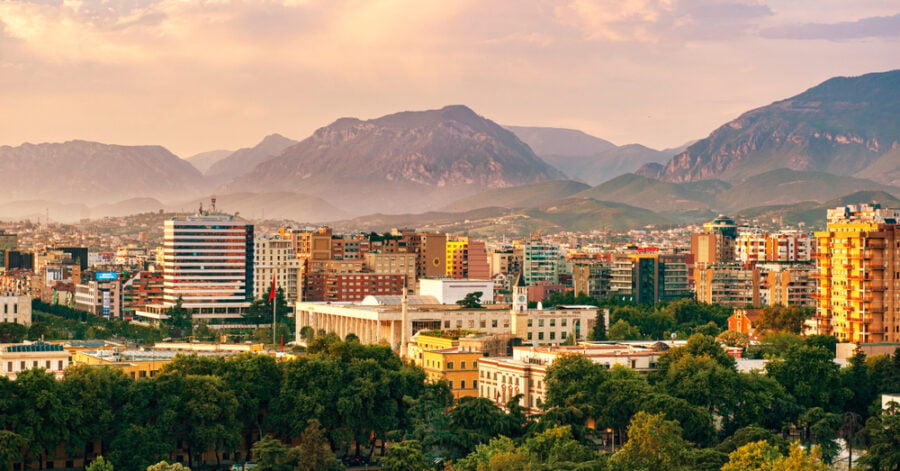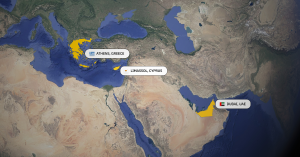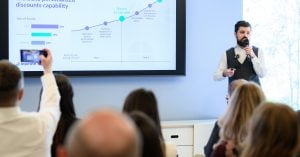The Albanian startup ecosystem is still in its infancy but it shows potential, especially when it comes to the ideation and incubation phases.
It all started mere nine years ago, with the first edition of Startup Weekend Tirana, Techstars’ hackathon-like event. Since then, the local entrepreneurial community has been developing rapidly and the ecosystem is now supported by a growing number of events, accelerators, co-working spaces, and incubators. Even, the government seems to be working on a startup law and one of the old symbols of communism in Albania, The Pyramid of Tirana, is being transformed into a tech hub.
We can see numerous promising tech companies such as Gjirafa, a search engine for information from Albanian websites, which has already fundraised $8.7M; Softmogul, hotel management software startup, part of the portfolio of the famous Plug&Play accelerator; as well as marketplaces and platforms in various sectors.
That said, innovative startups in Albania are still facing various challenges when it comes to reaching an international scale. To date, there are not that many Albanian ventures that have expanded successfully abroad. Traditional ways of doing business are still dominant in the country and interest in high-growth entrepreneurship is just starting to pick up. Furthermore, there is plenty of work to be done in educational institutions when it comes to training students to start their own innovative companies.
For all this to change, both youth organizations and public sector institutions are running initiatives to increase awareness of entrepreneurship and encourage people to build their startups in Albania.
One of the main ecosystem builders in the country is Aneida Bajraktari Bicja, Director at Startup Grind Tirana, Senator of Albania in the “World Business Angels Investment Forum”, and organizer of multiple events for the development of the ecosystem. She has also built her own business, a financial consulting company.
Etien Yovchev, editor at The Recursive, the media for innovation in Southeast Europe, talked to Aneida so we learn more about the current state of the Albanian startup community, what makes it attractive, and what are its challenges.
“In general, the barriers to enter the market are very low because company registration can be completed in one day and startup capital requirement is one euro only. There is also zero tax on profit now up to 110,000 euro. The workforce is young and well-educated, more than 55% of the population is under 35, and they all learn English and Italian at school,” shares Aneida in front of The Recursive.
One of the problems with this young population is that the job market still doesn’t offer enough opportunities for realization for them, so many smart professionals leave the country and go to work abroad. A brain drain challenge many countries in The Balkans are actually facing. Nonetheless, the ICT sector in Albania appears to be developing well and there is more focus on education and initiatives in that direction.
While Albania is still not part of the union, the EU is currently funding one of the biggest innovation projects in the country. With a budget of €7.5M and additional support from Germany and Sweden, the project aims to boost startup creation in the country by providing access to funding, entrepreneurial mentoring, and international exposure for local founders.
There are several elements missing from the ecosystem – there are currently no local VCs or developed business angel activity, media coverage for business and tech topics is scarce. Entrepreneurial education is also limited.
“I think one of the most important next steps for the ecosystem is to include the subject of entrepreneurship in the universities and schools so that all students have this critical perspective to see what is missing in their field of interest and how they can use business and technology to solve these problems.
If we want to have a more innovative and entrepreneurial economy, we need a bigger reform in the education system – that helps student learn skills for the 21st century and not just go to school to pick up some grades,” states Aneida.
In October, there will be a startup conference in Tirana dedicated to entrepreneurship in the Western Balkans. It is supposed to gather around 300 youngsters from all over the region. “We want to see the region connect and reconcile through entrepreneurship. It’s important that the young entrepreneurs have this sense of interacting with other like-minded people in the region”, concludes Aneida.








